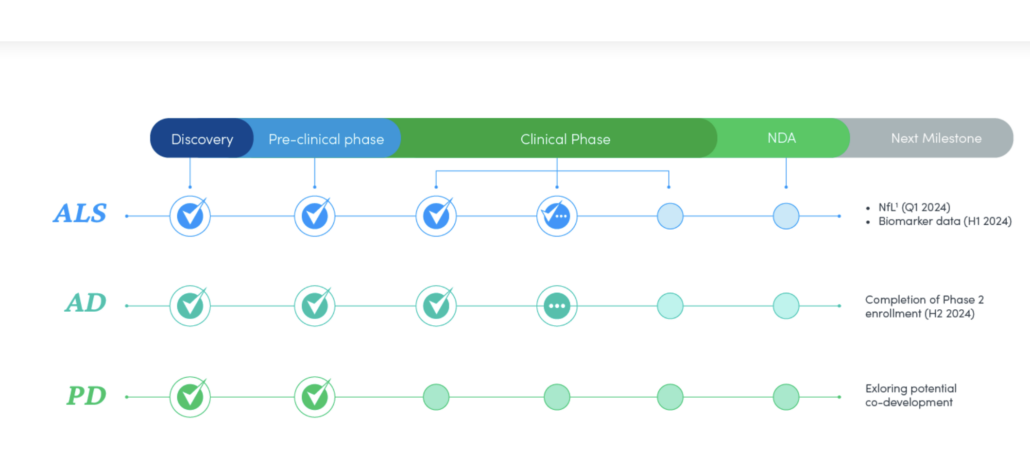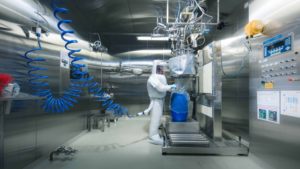
Lonza AG enters R&D collaboration with NeuroSense Therapeutics Ltd
ALS specialist NeuroSense Therapeutics Ltd announces it will be collaborating with Swiss Lonza AG to identify exosome-based biomarkers to advance theranostics in neurodegeneration.
Under the agreement with Lonza AG, NeuroSense Therapeutics Ltd will advance early diagnosis and treatment in the neurodegeneration field. Last December, the company reached the primary and secondary safety and efficacy endpoints in a Phase IIb study with its lead candidate for amyotrophic lateral sclerosis (ALS) Prime C. Prime C is a novel formulation of the FDA-approved drugs ciprofloxacin and celecoxib that is expected to regulate microRNA synthesis, reducing neuroinflammation, and influencing iron accumulation. However, results of an extension study, sponsored by Biogen Inc, on the primary biomarker endpoints of ALS hallmarks TDP-43 and Prostagladin are still not published though preliminary data were expected in January. Now the company expects new data in H1/2024.
The collaboration with Lonza AG is about develoing, optimising, and qualifying a method utilising Neuron-Derived Exosomes (NDEs), set to be integrated into the clinical development program of PrimeC by NeuroSense. The partners want to evaluate biological changes occurring in people with neurodegenerative diseases such as Parkinson’s and Alzheimer’s disease and ALS.
Unter the agreement, NeuroSense aims to access to Lonza’s extracellular vesicles expertise. NeuroSense will leverage its experience in biomarker utilisation in neurodegenerative diseases. Lonza will provide the development, optimization, and qualification of a method measuring biomarkers from NDEs.
Davide Zocco, Head of Exosomes Development, Lonza, commented: “Lonza has made significant investments in the exosome field over the last decade, including the acquisition of Exosomics, reflecting our commitment to enable innovators to advance their therapies. Our ‘Dev-on-Demand’ solution provides NeuroSense with access to expert scientists working in state-of-the-art laboratories for their development activities.”
NDEs are small extracellular vesicles generated by neurons that encapsulate a variety of molecules such as proteins, nucleic acids, and metabolites. Identification and measurement of NDEs and their cargo through easily accessible bodily fluids including plasma can facilitate the discovery of new biomarkers for prognosis and therapy, as these vesicles can pass the blood-brain barrier and noninvasively provide a depiction of the current physiological status of neurons in the brain.


 Lonza Group
Lonza Group Tetraneuron SL - Álvaro García
Tetraneuron SL - Álvaro García adobe.stock.com - ipopba
adobe.stock.com - ipopba